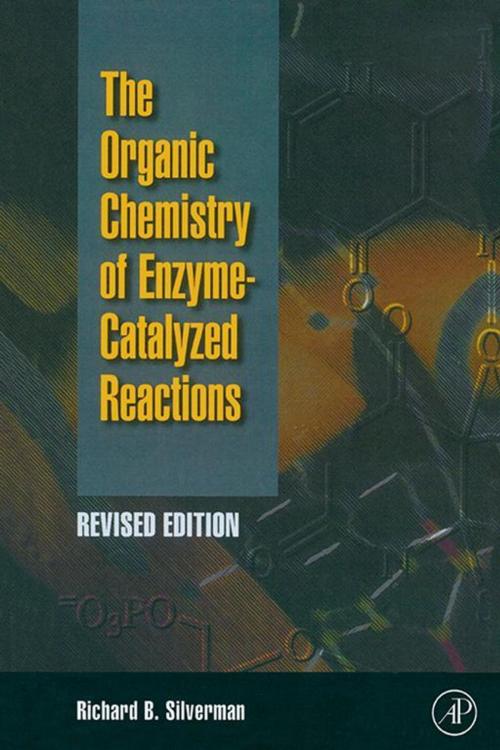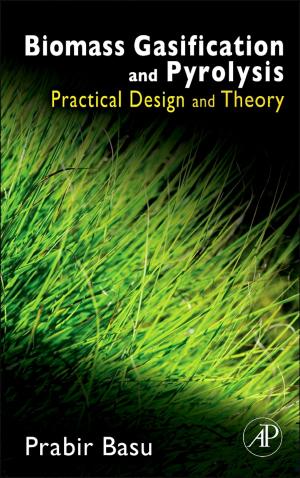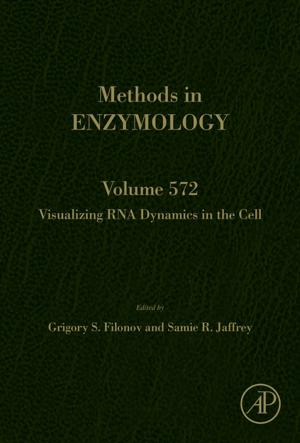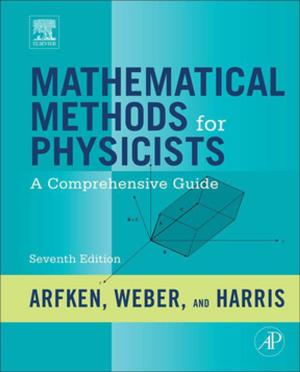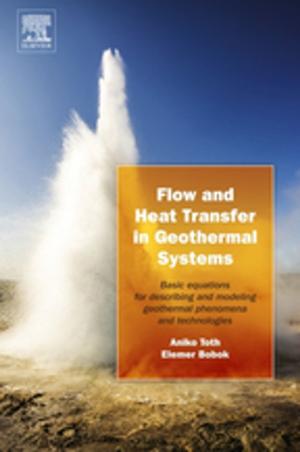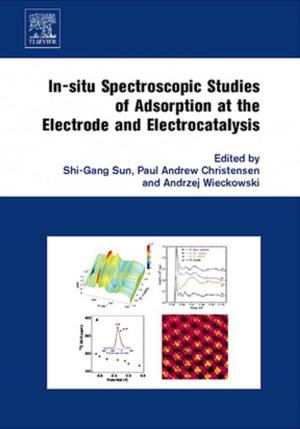Organic Chemistry of Enzyme-Catalyzed Reactions, Revised Edition
Nonfiction, Science & Nature, Science, Chemistry, Technical & Industrial, Technology, Engineering, Chemical & Biochemical| Author: | Richard B. Silverman | ISBN: | 9780080513362 |
| Publisher: | Elsevier Science | Publication: | March 7, 2002 |
| Imprint: | Academic Press | Language: | English |
| Author: | Richard B. Silverman |
| ISBN: | 9780080513362 |
| Publisher: | Elsevier Science |
| Publication: | March 7, 2002 |
| Imprint: | Academic Press |
| Language: | English |
The Organic Chemistry of Enzyme-Catalyzed Reactions is not a book on enzymes, but rather a book on the general mechanisms involved in chemical reactions involving enzymes. An enzyme is a protein molecule in a plant or animal that causes specific reactions without itself being permanently altered or destroyed.
This is a revised edition of a very successful book, which appeals to both academic and industrial markets.
Illustrates the organic mechanism associated with each enzyme-catalyzed reaction
Makes the connection between organic reaction mechanisms and enzyme mechanisms
Compiles the latest information about molecular mechanisms of enzyme reactions
Accompanied by clearly drawn structures, schemes, and figures
Includes an extensive bibliography on enzyme mechanisms covering the last 30 years
Explains how enzymes can accelerate the rates of chemical reactions with high specificity
Provides approaches to the design of inhibitors of enzyme-catalyzed reactions
Categorizes the cofactors that are appropriate for catalyzing different classes of reactions
Shows how chemical enzyme models are used for mechanistic studies
Describes catalytic antibody design and mechanism
Includes problem sets and solutions for each chapter
Written in an informal and didactic style
This is a revised edition of a very successful book, which appeals to both academic and industrial markets.
Illustrates the organic mechanism associated with each enzyme-catalyzed reaction
Makes the connection between organic reaction mechanisms and enzyme mechanisms
Compiles the latest information about molecular mechanisms of enzyme reactions
Accompanied by clearly drawn structures, schemes, and figures
Includes an extensive bibliography on enzyme mechanisms covering the last 30 years
Explains how enzymes can accelerate the rates of chemical reactions with high specificity
Provides approaches to the design of inhibitors of enzyme-catalyzed reactions
Categorizes the cofactors that are appropriate for catalyzing different classes of reactions
Shows how chemical enzyme models are used for mechanistic studies
Describes catalytic antibody design and mechanism
Includes problem sets and solutions for each chapter
Written in an informal and didactic style
The Organic Chemistry of Enzyme-Catalyzed Reactions is not a book on enzymes, but rather a book on the general mechanisms involved in chemical reactions involving enzymes. An enzyme is a protein molecule in a plant or animal that causes specific reactions without itself being permanently altered or destroyed.
This is a revised edition of a very successful book, which appeals to both academic and industrial markets.
Illustrates the organic mechanism associated with each enzyme-catalyzed reaction
Makes the connection between organic reaction mechanisms and enzyme mechanisms
Compiles the latest information about molecular mechanisms of enzyme reactions
Accompanied by clearly drawn structures, schemes, and figures
Includes an extensive bibliography on enzyme mechanisms covering the last 30 years
Explains how enzymes can accelerate the rates of chemical reactions with high specificity
Provides approaches to the design of inhibitors of enzyme-catalyzed reactions
Categorizes the cofactors that are appropriate for catalyzing different classes of reactions
Shows how chemical enzyme models are used for mechanistic studies
Describes catalytic antibody design and mechanism
Includes problem sets and solutions for each chapter
Written in an informal and didactic style
This is a revised edition of a very successful book, which appeals to both academic and industrial markets.
Illustrates the organic mechanism associated with each enzyme-catalyzed reaction
Makes the connection between organic reaction mechanisms and enzyme mechanisms
Compiles the latest information about molecular mechanisms of enzyme reactions
Accompanied by clearly drawn structures, schemes, and figures
Includes an extensive bibliography on enzyme mechanisms covering the last 30 years
Explains how enzymes can accelerate the rates of chemical reactions with high specificity
Provides approaches to the design of inhibitors of enzyme-catalyzed reactions
Categorizes the cofactors that are appropriate for catalyzing different classes of reactions
Shows how chemical enzyme models are used for mechanistic studies
Describes catalytic antibody design and mechanism
Includes problem sets and solutions for each chapter
Written in an informal and didactic style
